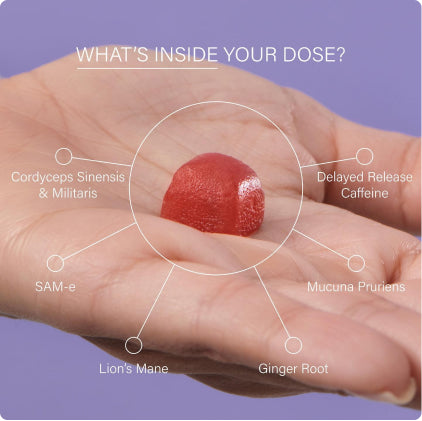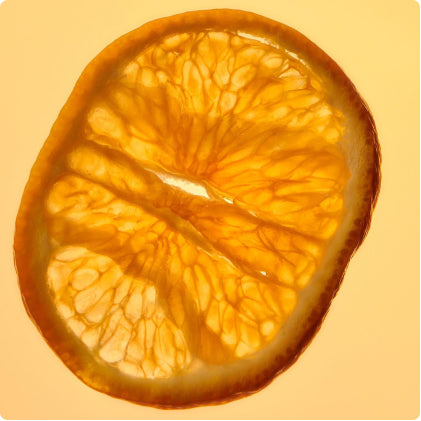Cordyceps have become one of the most popular mushrooms in the health and fitness community. As a result, you can find the fungi listed in a wide variety of supplements targeted at health issues ranging from fatigue, to mood disorders and sexual health.
It's an incredibly powerful mushroom, which is why we use it in our legal micro-dosing product Mojo.
Besides featuring a fascinating reproduction mechanism, Cordyceps have been used for centuries in traditional Chinese medicine and other medical traditions all across Asia. However, a lot of misleading claims about the benefits of Cordyceps are used to sell modern supplements.
So what are they exactly, and do they possess the multitude of health benefits according to their hype?
What are Cordyceps mushrooms?
The Cordyceps genus contains over 400 different species of fungi. They’re found worldwide but are most commonly found in tropical and sub-tropical Asian climates such as China, Nepal, and Bhutan.
An enthralling (but somewhat terrifying) BBC Planet Earth segment depicted the Cordyceps fungi infecting an ant, taking control over its mind and body, and turning it into a “zombie” that continued moving to reach an optimal location for releasing more spores.
It’s true. Cordyceps are parasitic fungi that reproduce by infecting a host insect. First, spores land on caterpillars, wasps, or other insects and invade their bodies. Then the mycelium slowly consumes the insect’s tissue from the inside until a long, thin fruiting body sprouts from the insect’s head and releases more spores into the air.
[Image of the parasitic fungi infecting an insect]
Though there are many varieties of Cordyceps, the two most common species used in scientific research and health supplements are Cordyceps sinensis and Cordyceps militaris.
Cordyceps sinensis vs. Cordyceps militaris
Since most supplements just mention the umbrella term “Cordyceps,” it’s important to distinguish between the two main varieties in the market.
Cordyceps sinensis – the prized Caterpillar Fungus
Cordyceps sinensis is the most valuable variety, as it’s tough to cultivate and is mainly harvested from the wild. This species targets caterpillars of the Hepialus moth and is primarily found in high elevation areas of China and Tibet but can also be found in Nepal, India, and Bhutan.
Due to its rarity and the challenging conditions of harvesting them, a kilogram of wild Cordyceps sinensis can fetch an astonishing $20,000.
'Caterpillar fungus' is the variety that one often sees on marketing labels, even if no C. sinsensis is present in the product. C. militaris is often passed off as C. sinensis due to the latter’s greater commercial value.
Traditional Chinese medicine has a long history of prescribing this fungus to treat a range of ailments affecting the immune system. It is believed to help with chronic kidney disease, improve energy and libido, and possess powerful anti-aging properties.
Cordyceps militaris – suitable for mass cultivation
Cordyceps militaris is most likely the one inside your Cordyceps supplement. Since the C. sinensis species is so difficult to grow in a lab, researchers have turned to the C. militaris variety for commercial cultivation. This has made Cordyceps militaris extracts much cheaper and easier to obtain, leading to its mass-market adoption.
Despite being grown on various substrates in artificial environments, C. militaris still possesses many of the same potential health benefits as the wild variety and has been used traditionally as a substitute for Cordyceps sinensis.
In fact, studies have shown Cordyceps militaris contains much higher levels of cordycepin than found in C. sinensis. Cordycepin has been widely studied for its potential benefits to the immune system and the cardiovascular, hepatic, and renal systems.
What are the health benefits of Cordyceps?
Many Cordyceps species are considered to have beneficial effects on the immune system and overall energy levels. Cordyceps sinensis is even referred to as “Himalayan Viagra” due to its perceived libido-boosting properties.
This esteemed reputation stems from centuries of use in traditional Chinese medicine and other Asian medicinal traditions. Additionally, these claims are continually validated by laboratory-based studies.
Here are some of the commonly claimed health benefits relating to Cordyceps. It should be noted more studies are required to corroborate such claims scientifically. Still, both the historical record and current research are promising.
Athletic performance
Cordyceps may have a positive effect on your body’s use of oxygen during exercise. Studies have found that test subjects experienced reduced fatigue and improved tolerance to high-intensity exercise after repeated exposure to Cordyceps supplementation.
Anti-aging properties
Experiments conducted on mice point to the anti-aging effects of Cordyceps. Studies suggest this is likely due to the promotion of increased anti-inflammatory and antioxidant activity, which fights free radicals that cause cell damage.
Anti-tumor properties
Many studies have been conducted to test the effectiveness of Cordyceps in the treatment of various cancers. For example, test-tube studies and studies done on mice have indicated positive effects in the inhibition of tumorous cancer cells caused by lung, colon, liver, skin, and lymphoma cancers.
Blood sugar management
Cordyceps has been shown to reduce blood sugar levels in animal studies. It also demonstrates potential in treating chronic kidney disease (CKD) that is commonly related to complications from diabetes.
Increased libido
The effect of Cordyceps on a person's sex drive is heavily promoted in traditional Chinese medicine. Although scientific research is inconclusive, some studies do indicate an increased libido in both men and women. This could also be due to other positive biophysical effects of Cordyceps mushrooms.
Heart health maintenance
Animal studies suggest that the introduction of Cordyceps may lead to lower cholesterol levels. For example, hamsters on a high-fat diet that received daily supplements of cordycepin experienced the reduction of LDL cholesterol and triglycerides, two crucial factors in cardiovascular health.
Stress relief
Cordyceps has traditionally been prescribed for a variety of mood and anxiety-related disorders. Since they are considered to be adaptogens, Cordyceps may have calming and restorative properties by decreasing oxidative stress.
How do you take Cordyceps supplements?
If you plan to take Cordyceps supplements to treat any type of illness, it’s best to consult your doctor first. However, as a complement to a balanced diet and other healthy habits, taking Cordyceps may have beneficial effects and give a boost to your systems.
The easiest way to introduce Cordyceps to your diet is by consuming a Cordyceps extract in capsule or powder form. Since mushroom cell walls are made of hard-to-digest chitin, it's easier for the body to absorb the active nutrients through extracts. The powder form can be made more palatable by mixing it into various foods and drinks, from coffee to chocolate or chews.
1000-3000mg of Cordyceps per day is considered a safe and effective dosage for adults. One study targeting athletic performance prescribed a dosage of 4000mg a day with positive results.
The final word
Cordyceps are a fascinating genus of fungi with a rich medicinal history and many potential uses. Though more studies are needed, the current research seems to back up the claims of traditional Chinese medicine. There do indeed seem to be health benefits of Cordyceps consumption.
If you decide to try Cordyceps extract supplements, make sure to buy them from a reputable source that can verify the Cordyceps species included as well as the purity and quality. Many Cordyceps supplements grind up the growing substrate along with the mushroom fruiting body. These sources may not specify the inclusion of either Cordyceps sinensis or Cordyceps militaris, so be aware of this when researching your options.
Table of contents









